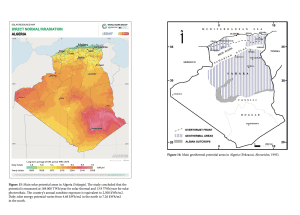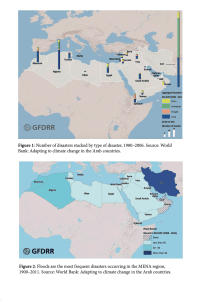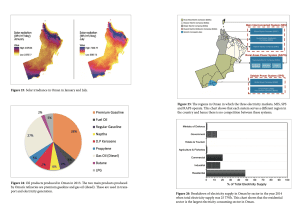Working to improve mutual understanding between the Middle East and the West
Working to improve mutual understanding between the Middle East and the West
No products in the basket.
The Middle East and North Africa region is well known for its abundant natural resources and important geostrategic position. This image is often overshadowed by on-going sectarian violence and trans-boundary conflicts that threaten the stability of the entire region with huge global implications. Although the region’s fragile state of the environment has increasingly preoccupied policymakers in individual countries, there is as yet insufficient concerted effort for initiating collaborative action to address problems relating to its environmental sustainability. Despite the urgency of these challenges, there are very limited resources, if any, dedicated to studying MENA’s environmental sustainability. Environmental Challenges in the MENA Region includes contributions by experts and policy-makers concerned with the state of the region’s environmental predicament with the aim of addressing these problems with a constructive and forward-looking approach.
Hassan Hakimian is Director of the London Middle East Institute (LMEI) and a Reader in the Economics Department at SOAS, University of London. Hamid Pouran is a Research Associate at SOAS, University of London and Lecturer in environmental technology at the University of Wolverhampton. He is Senior Member IEEE and Chair IEEE UK and Ireland Climate Change and Environmental Technology Special Interest Group (ETSIG).
Contributors: Iyad Abumoghli, Tony Allan, Marta Antonelli, María J. Beltrán, Matthew Broughton, Mine Cinar, Philipp Dees, Ludovic Gaudard, Nathalie Hilmi, Helen Lackner, Nancy Lindisfarne, Niall Mac Dowell, Kaveh Madani, Maral Mahlooji, Jonathan Neale, Victor Planas-Bielsa, Alain Safa, Safia Saouli, Juman Al-Saqlawi, Georgeta Vidican Auktor, Tobias Zumbrägel.
Foreword vii Tony Allan
1. Introduction
Hamid Pouran and Hassan Hakimian
PART ONE: GENERAL OUTLOOk
2. Environmental Outlook for the West Asia Region
Iyad Abumoghli and Matthew Broughton
PART TWO: ClIMATE CHANGE AND ItS IMPLICATIONS
3. Environmental Risks and Ocean Acidification in the MENA Region
Nathalie Hilmi, Alain Safa, Victor Planas-Bielsa and Mine Cinar
4. Being Green or Being Seen Green? Strategies of Eco Regime Resilience in Qatar
Tobias Zumbrägel
5. Oil, Heat and Climate Jobs in the MENA Region
Nancy Lindisfarne and Jonathan Neale
PART THREE: WATER SCARCITY AND FOOD SECURITY
6. MENA Water and Food Security Since 1950: Adaptation and Economic Diversification
Marta Antonelli and Tony Allan
7. Extreme Environmental Challenges in the Context of Lasting Political Crisis: the Case of Yemen
Helen Lackner
8. Do Virtual Water Flows Actually Flow? A Political Ecology of Agricultural Virtual Water (non-)Flows in Palestine during the Post-Oslo Period
María J. Beltrán
PART FOUR: MENA AND RENEWABLE ENERGIES
9. Renewable Deployment in the MENA Region: Growth Effects and Explaining Factors
Philipp Dees and Georgeta Vidican Auktor
10. Renewable Energy Potential in Algeria: Opportunities
and Setbacks
Safia Saouli and Kaveh Madani
11. A System of Systems (sos) Approach to Sustainable Energy Planning: Insight for the Persian Gulf Countries
Maral Mahlooji, Ludovic Gaudard and Kaveh Madani
12. The Energy Sector in Oman
Juman Al-Saqlawi, Niall Mac Dowell and Kaveh Madani
Contributors
Foreword
Tony Allan
The Middle East region has endured a century of challenges marked by external interventions, accelerating climate change and population increase. The result has been growing political and social instability. The region’s political systems have been overstretched with recurrent uncertainty, ongoing political conflict and bouts of intense armed conflict. As a result, regional and international media have enough bad news from the Middle East to regularly fill in television screens and pages of the print media.
In these circumstances it comes as no surprise that the environment does not make it on to front pages, as bad environmental news generally tends to be under- reported. Sadly, this pattern is not limited to the Middle East alone as under- reporting is also common in major economies such as the United States, the EU and other advanced and diverse economies.
The experience of trying to have sound environmental science considered in international negotiations has everywhere proven to be a very disorderly procedure. Short-term interests at both national and global levels, blind to the need for environmental stewardship, have determined problematic outcomes. The classic case is the battle being waged by those calling for precautionary policies on green- house gas emissions. Climate change politics has become an endless, toxic, frustrating international political process.
The challenge taken up by the editors and authors of this volume is to fore- ground very effectively the need in the Middle East for the adoption of environ- mental policies, informed by science. The sustainable security of the peoples and governments of the region depends on the reversal of the evident, but generally ignored, degradation of the region’s natural ecosystems. These dangerous trends are identified by the authors in this volume, but they regret that they have not yet found a way to get them effectively reported and discussed by legislators.
A number of very important messages are highlighted by the authors. In a world in which it is possible to manage public awareness by under-reporting politically destabilising bad news, the chapters in this book provide examples of how ecosystem crises can be made worse. one of the important contributions of the book is the reminder that invisible elements of the global political economy make it possible for governments to enjoy a version of water and food security that is vital but whose lack must remain politically invisible.
No one is aware – certainly not the peoples and legislators of Middle Eastern economies – that they have enjoyed a version of water and food security that has been invisible, and therefore politically feasible. This invisible system has, at no cost to the region’s economies, also protected its environmental capital such as its water ecosystems.
The global food system has provided the solution of water security and some costless environmental protection. The Middle East economies have depended more than any other region in the world on the global food system, which has for the past century provided food, more importantly underpriced food, for any economy in the world that has not had enough water to ensure its food self-sufficiency.
By about 1970, the region as a whole could no longer feed itself and became a net food importer. If international food prices had reflected the true costs of production, as well as the costs of water consumed in producing it and the costs of water stewardship in the exporting economy, the global food market would have suffered an existential threat. In practice, internationally traded staple foods have been underpriced and the exporting economies have borne the environmental costs of production. As a consequence, water-scarce economies have been able – without any political stress – to import themselves out of their otherwise impossible predicaments of water and food insecurity.
The authors in this volume have made a very significant contribution by providing the scientific fundamentals on the status of the Middle Eastern environ- mental capital shared by the economies of the region. More importantly, they have drawn attention to and critiqued the character and capacity of the region’s governance systems. They have many important things to say about the necessary and feasible social and environmental policies. They show how they are needed to reshape the expectations of society and create strong and diverse economies that protect the region’s environmental resources and manage the atmosphere, water and biodiversity sustainably.
Tony Allan
SOAS, University of London and King’s College London
July 2018



‘Using anthropogenic, political and economic perspectives, the book highlights a group of challenges that are facing the West Asia region […] Generally, the book is valuable, rich in facts, statistics and references, and it is fair. It should alarm governments and rulers of suffering and poor countries, as well as kings and princes of oil wealthy countries to take action and/or implement their already established plans. This is a book for those who care about climate change, water scarcity and the possibility of deploying renewables in the MENA region.’
– Marwa T. A. Abdel-Wareth, International Journal of Environmental Studies
Our work relies on the generous support of our donors. Any contribution, no matter how small, helps us achieve our aims.